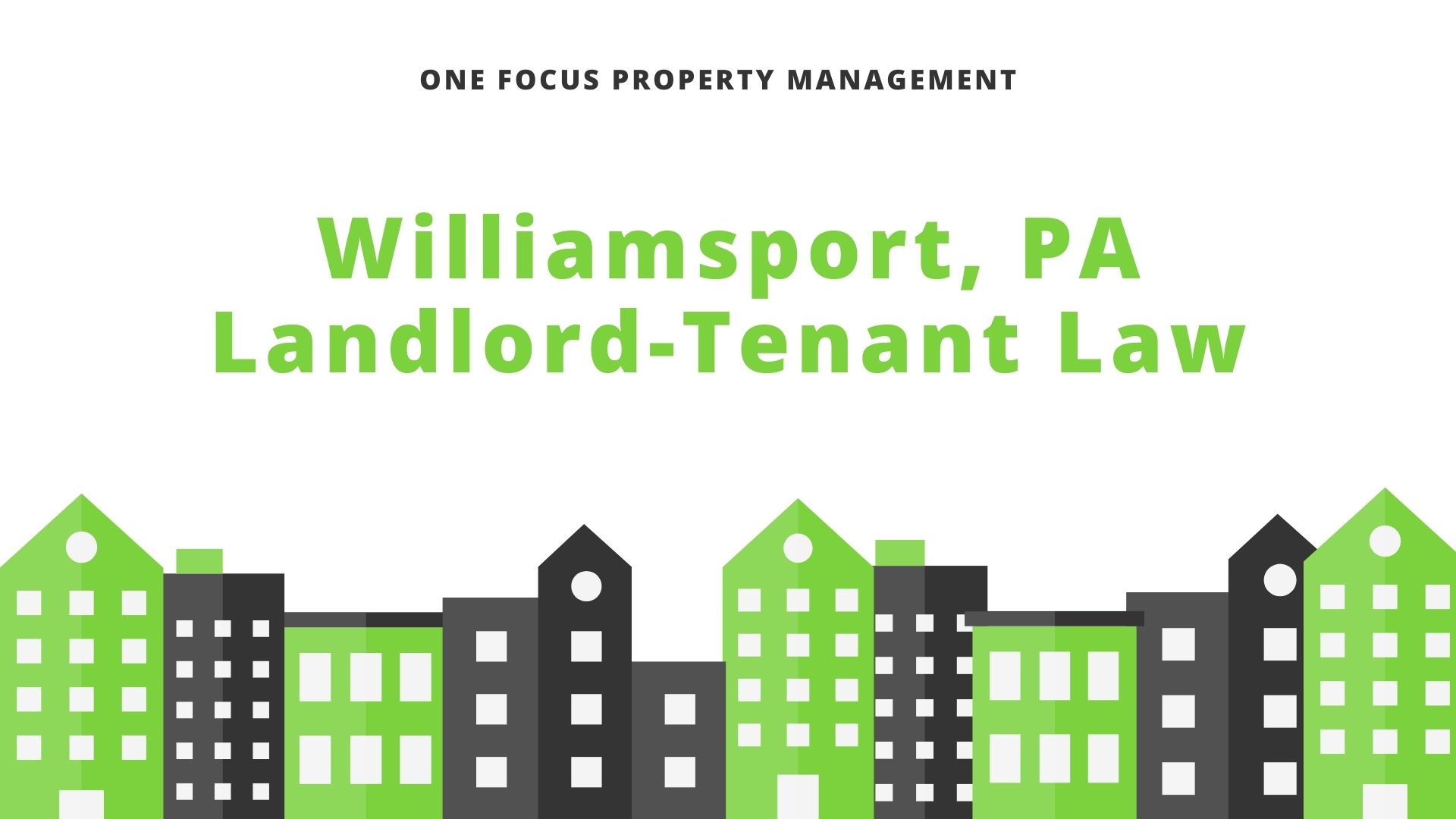Both landlords and tenants have certain rights and obligations under the Pennsylvania Landlord-Tenant laws when renting out a property. These rights and responsibilities come into effect after a lease or rental agreement is established.
So, whether you’re a new landlord or a seasoned one, having a proper understanding of the Pennsylvania state laws is important. This is why we at One Focus Property Management have put together the below, basic overview of the Pennsylvania landlord-tenant laws.
Required Landlord Disclosures
Prospective tenants have the right to know certain information about the property before committing to rent your home. While other states have more, in Pennsylvania, you’re only required to make one disclosure regarding lead-based paint.
The disclosure is only meant for landlords who own units that were built prior to 1978. You must let your tenant know before they sign the lease, about the lead-based paint concentrations in your home.
Tenants’ Rights & Responsibilities
Under the Pennsylvania Landlord and Tenant Act, the following are some of the rights your tenants have. Including the right to:
- Occupy a home that meets Pennsylvania’s safety, health, and structural codes in accordance with the state’s Warranty of Habitability.
- Enjoy the home in peace and quiet as per the provisions of the Implied Covenant of Quiet Enjoyment.
- Continue occupying the property until the landlord has taken proper eviction procedures to evict them out.
- Have repairs been done without unnecessary delays?
- Be treated without discrimination as per the Pennsylvania Fair Housing Act.
- Break the lease early for legally justified reasons, such as starting an active military career.
- Be notified before any changes are made to the existing lease agreement.
- Be provided mandatory disclosures prior to signing the lease agreement.
As for responsibilities, tenants in Pennsylvania have an obligation to:
- Keep the unit in a clean and sanitary condition at all times.
- Maintain the property in a habitable condition by not causing material safety and health violations.
- Report maintenance issues to the landlord as soon as they become aware of them.
- Allow reasonable entry to the landlord.
- Keep fixtures in a clean and functioning order.
- Not to destroy or damage any part of the property or allow somebody else to do so.
- Respect the peace and quiet of other neighbors.
- Abide by all rental terms and policies.
- Take care of any damages they are responsible for.
- Use their rental premises for its intended purposes.
- Keeping fixtures clean and in working order.

Landlord Rights & Responsibilities in Pennsylvania
As a landlord, you also have rights and responsibilities, and the following are some of the rights you have under the Pennsylvania landlord-tenant act. The right to:
- Enter your tenant’s rented premises to perform your responsibilities.
- Evict a tenant who falsifies information in their rental application or violates the terms of the agreement.
- Not renew a tenant’s lease when it ends.
- Reject a tenant’s rental application for legitimate reasons.
- Be notified of repair and maintenance issues.
- Be notified by a tenant who is looking to be out of town for an extended period of time.
- Enforce the terms of the lease agreement.
- Require tenants to sign a lease agreement before moving into the premises.
- Require a security deposit as part of the move-in costs.
- Be notified by a tenant who is looking to move out of their rented premises at the end of the lease.
Some of the responsibilities you have as a Pennsylvania landlord are as follows.
- Making needed or requested repairs promptly.
- Evicting the tenant in accordance with the Pennsylvania eviction laws.
- Providing tenants with a unit that abides by the state’s safety and health codes.
- Providing tenants with mandatory disclosures prior to allowing them to move in.
- Giving them proper notice prior to terminating their month-month rental agreement.
- Treating them fairly and respectfully in accordance with the Pennsylvania Fair Housing Act.
- Providing tenants with facilities and amenities promised in the lease agreement.
- Notifying tenants prior to entering their homes.
- Maintaining the peace and quiet of the tenant by removing or minimizing disruptions and interruptions.
- Abiding by all terms of the lease agreement.
An Overview of the Landlord-Tenant Laws
Tenant Evictions
The Pennsylvania landlord-tenant act allows landlords to evict tenants for certain reasons. These reasons include:
- Failure by the tenant to pay rent
- Failure by the tenant to abide by the terms of the lease agreement
- If there is no lease in place
- The tenant engaging in illegal drug activity
You must follow the proper eviction process for it the eviction to succeed. Retaliatory, discriminatory, or self-help evictions are prohibited.
Security Deposits
Within the Pennsylvania landlord-tenant act are some security deposit rules. So, you must abide by them if you require a security deposit from your tenant. The following are some of the rules you must follow:
- The security deposit you ask for from your tenant must not exceed the equivalent of 2 months’ rent.
- Once the tenant has moved out, you must return their security deposit within a period of 30 days.
- You must only make appropriate deductions to a tenant’s deposit for allowable reasons.
Please note that wrongfully withholding your tenant’s security deposit has consequences. You may end up forfeiting the deposit, as well as paying up to 2X the original deposit amount in damages.

Housing Discrimination
The Fair Housing Act provides protection for certain demographics. What this means is that you cannot discriminate against a prospect or tenant based on their:
- Race
- Color
- Disability
- Religion
- Nationality
- Familial status
- Age
You also cannot change your rent value for a tenant based on any of these protected classes.
Bottom Line
As a landlord operating in Pennsylvania, you should understand the landlord-tenant laws that govern the interactions you will have with your tenants.
So, if you have any further questions regarding this or any other aspect of property management. Please don’t hesitate to contact us at One Focus Property Management today!
Disclaimer: This blog isn’t a substitute for professional legal advice. Also, laws change, and this information may not have been updated at the time you read it. For questions regarding this content, please get in touch with One Focus Property Management. We have a professional and dedicated management staff that focuses entirely on property management and leasing services!



